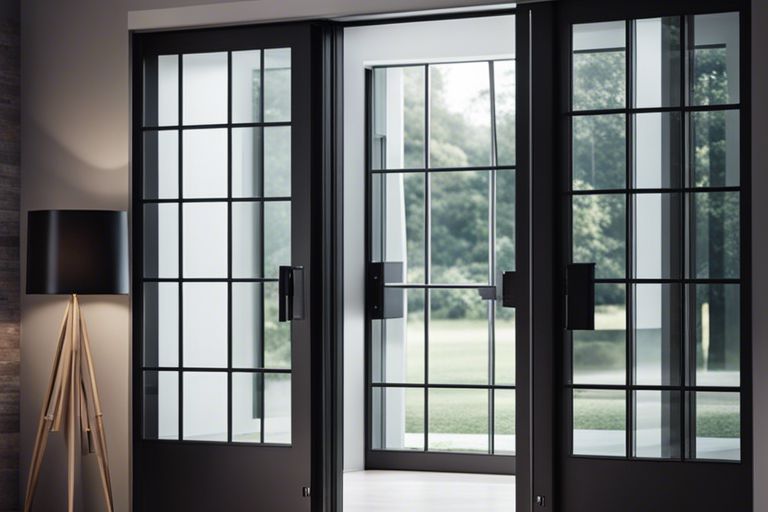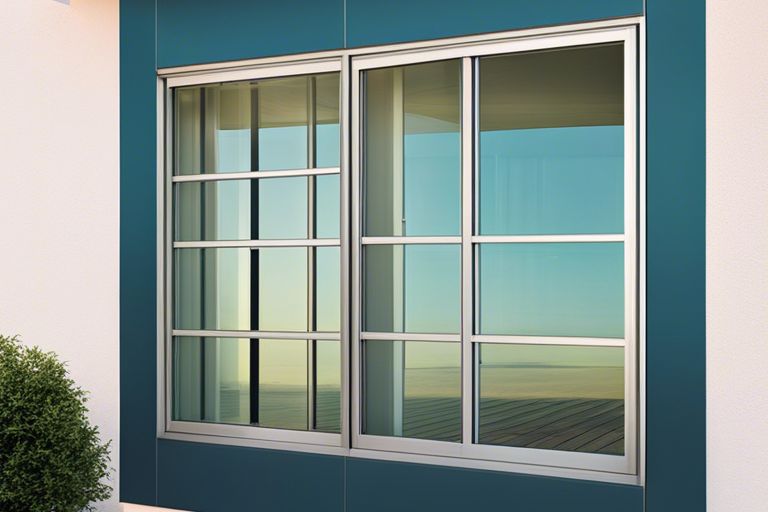Are you wondering why it’s so important to insulate your windows? If you’re like many homeowners, you might think that it’s not necessary – after all, isn’t insulation only for keeping the heat in during the winter? But thermal insulation can do much more than that. In this blog post, we’ll discuss why thermal insulation is essential for windows and how it can help keep your energy bills down.
Introduction
Thermal insulation is a critical factor in creating comfortable and energy-efficient living spaces. It helps to maintain indoor temperatures and reduce energy costs. Windows account for a large percentage of heat loss in buildings, making it important to choose the right type of insulation to keep the heat in and the cold out. This blog post will discuss why thermal insulation is important for windows, the benefits it can offer, how it works, and how to choose an appropriate window insulation option.
What is Thermal Insulation?
Thermal insulation is the process of reducing the transfer of heat between objects in thermal contact. It is an essential tool for controlling temperatures and energy costs in homes and businesses. Thermal insulation works by trapping air or other gases in tiny pockets, which act as barriers to heat flow. This creates an environment where heat can be retained or kept out, depending on the desired outcome. By using thermal insulation materials such as foam, fiberglass, and plastic, homeowners and businesses can reduce energy costs, increase comfort levels, and protect against weather extremes while also enjoying noise reduction benefits and minimal maintenance requirements.
The Benefits of Thermal Insulation for Windows
Thermal insulation for windows is an important factor in the overall comfort and efficiency of a building. Installing thermal insulation can help to reduce energy costs, increase comfort levels in homes and businesses, and protect from weather extremes. Additionally, thermal insulation can provide noise reduction benefits that can improve the quality of life of those living or working in a space. Finally, insulated windows require minimal maintenance, making them a great option for those looking for a long-term solution.
How Does Thermal Insulation Work?
Thermal insulation works by creating an air gap between two materials that have different temperatures. This air gap acts as a barrier, preventing heat from transferring from the hot material to the cold material. This helps to keep the temperature inside your home or business more consistent and comfortable. The benefits of thermal insulation for windows are numerous.
For starters, thermal insulation helps to reduce energy costs by keeping heat from escaping out of windows. By creating a thermal barrier, you can reduce your need for artificial heating and cooling systems, thus saving on energy bills. Additionally, thermal insulation can improve the comfort levels in your home or business by keeping the internal temperature more consistent throughout the year. It also protects your property from extreme weather conditions, such as high winds and heavy rain.
Furthermore, thermal insulation can also provide noise reduction benefits. This is especially important in urban areas where loud noises from traffic or industrial machinery can be disruptive. Thermal insulation can help to block out this noise and create a more pleasant environment. Lastly, insulated windows require much less maintenance than regular windows, meaning you can save money in the long run by not needing to replace or repair them as frequently.
Reduce Energy Costs
Thermal insulation for windows is one of the most effective ways to reduce energy costs in your home or business. By keeping the indoor temperature of your building consistent, you can avoid having to use additional heating and cooling systems to maintain a comfortable environment. This saves you money on electricity bills, as well as reducing your carbon footprint. Additionally, thermal insulation also helps keep heat in during cold winter months and keep heat out during hot summer months, further improving energy efficiency. Thermal insulation makes it possible to reduce energy consumption by up to 30%, so it is an excellent option for anyone looking to reduce their energy costs.
Increase Comfort Levels in Homes and Businesses
Insulating windows can help to increase comfort levels in both residential and commercial buildings. By using thermally insulating double glazing, occupants can experience less temperature variability and reduced thermal discomfort from cold radiation. Furthermore, window insulation can reduce heat gain in the summer months, particularly in warmer climates. Installing window coverings such as sunshades can also help to reduce unwanted heat gain and improve comfort levels. Retrofitting existing buildings with insulation and air sealing can create an improved thermal environment and boost indoor comfort.
Protection From Weather Extremes
Protection from weather extremes is one of the most important benefits of window insulation. Thermal insulation keeps the heat in during cold winter days, and prevents the heat from entering your home during hot summer days. This helps keep your home comfortable all year round, no matter the temperature outside. Insulated windows also help protect your home from damage caused by extreme weather events, such as hurricanes, snowstorms, and floods. By having insulation in your windows, you can be sure that your property will stay safe and secure.
– Noise Reduction Benefits
Noise reduction is an important factor to consider when choosing window insulation. Secondary glazing systems, such as acoustic glass, can reduce external noise by as much as 75 – 80%. Thicker and heavier than 4mm glass, it also improves thermal performance. Furthermore, when tested with acoustic glass, windows achieved noise reduction by Rw=43dBa. This makes them an excellent choice for homes, offices and other public buildings where noise insulation is a priority. In addition to providing excellent heat insulation, air also makes a great noise insulator. The concept is that sound waves will be absorbed by the air pocket created between the two window panes, leading to a significant reduction of noise. As such, secondary glazing is well-known for its heat insulation qualities and its ability to reduce noise levels by up to 80%.
How Noise Insulation Can Improve Your Quality of Life
The benefits of noise insulation can have a tremendous impact on your quality of life. It is well known that noise pollution can have a negative effect on one’s mental and physical health, leading to stress, fatigue, and other health issues. By installing windows with noise reduction features, you can reduce the amount of noise that enters your home or business and improve the overall environment. Noise-reducing windows come in a variety of styles and materials, allowing you to customize your insulation solution to suit your specific needs. These windows are designed to absorb sound waves by trapping them between layers of glass or other insulation materials, resulting in a much quieter interior space. Not only do these windows help to reduce loud outside noises, but they can also help to muffle sounds within the home or building, making conversations more private and allowing you to enjoy a more peaceful environment.
Minimal Maintenance Requirements
When it comes to window insulation, minimal maintenance is required. Thermal insulation helps to prevent air leakage, which reduces the need for frequent repairs. Additionally, certain materials used for thermal insulation, such as PVC frames, are low-maintenance and require minimal upkeep. This makes it easier to keep your windows in good condition for longer periods of time. With the right insulation, you can also expect fewer problems with moisture, mold and mildew accumulation. Thermal insulation materials also tend to be more durable than other window frame materials, which means they will last longer and require less maintenance over time.
Environmental Benefits of Window Insulation
When it comes to protecting the environment, window insulation has several advantages. For one, it helps reduce the amount of energy used for heating and cooling homes and businesses. As a result, less carbon dioxide is released into the atmosphere, reducing the effects of global warming. Furthermore, window insulation can also reduce the amount of air conditioning and heating that needs to be used in order to maintain comfortable temperatures inside. This helps conserve energy, which in turn helps to reduce overall energy consumption. Lastly, window insulation can also help reduce outside noise pollution, making homes and businesses more peaceful and quiet. By taking advantage of these environmental benefits, you can help protect the planet while also improving your quality of life.
How to Choose a Window Insulation Option
When it comes to choosing the right window insulation option for your home or business, there are several factors to consider. First, consider the climate in which you live and the types of temperatures you will be exposed to. For example, if you live in a very cold region, you may want to opt for a window insulation option that is designed to reduce heat transfer from one side of the window to the other. You should also consider the type of glass you will use, as well as the energy efficiency and insulation ratings of your windows. Furthermore, you can choose between single and double glazed windows, depending on your needs. Finally, it’s important to take into account the type of frame material you’ll be using in order to ensure that your windows are properly insulated and able to withstand extreme weather conditions.
Factors to Consider When Choosing an Insulated Window Frame Material
When it comes to choosing the right insulated window frame material, there are a few factors to consider. Firstly, you need to consider the U-value of the material, which measures the amount of heat that can pass through it. Secondly, look at the thermal insulation properties of the material, such as air cavities and highly thermal insulating materials. Thirdly, consider the difficulty of insulation in areas where there may be thermal bridging. Finally, think about how easy the window material is to maintain and clean. Aluminium and uPVC window frames are both popular choices for insulation and are easily maintained. EPS insulation is often used to eliminate thermal bridging, so this is also something to keep in mind when making your decision.
Conclusion
In conclusion, thermal insulation is an important component of building design and thermal comfort. It can reduce heat loss through windows, provide protection from weather extremes, reduce noise levels, and help save energy costs. Additionally, it can improve the quality of life in homes and businesses and reduce the environmental impact of window insulation. When choosing a window insulation option, it is important to consider factors such as the type of material used, the level of insulation provided, and the durability of the material. Through proper insulation selection and installation, homeowners and business owners can enjoy all the benefits of thermal insulation.






